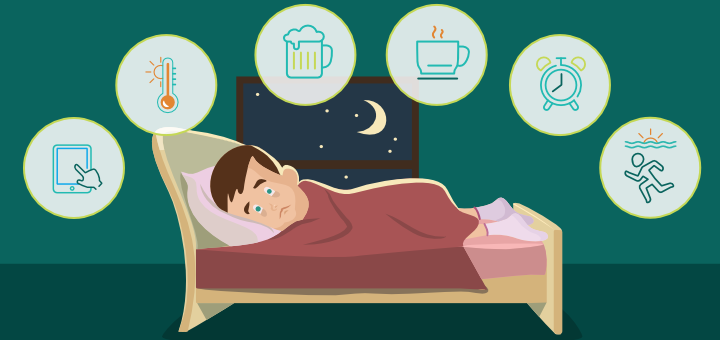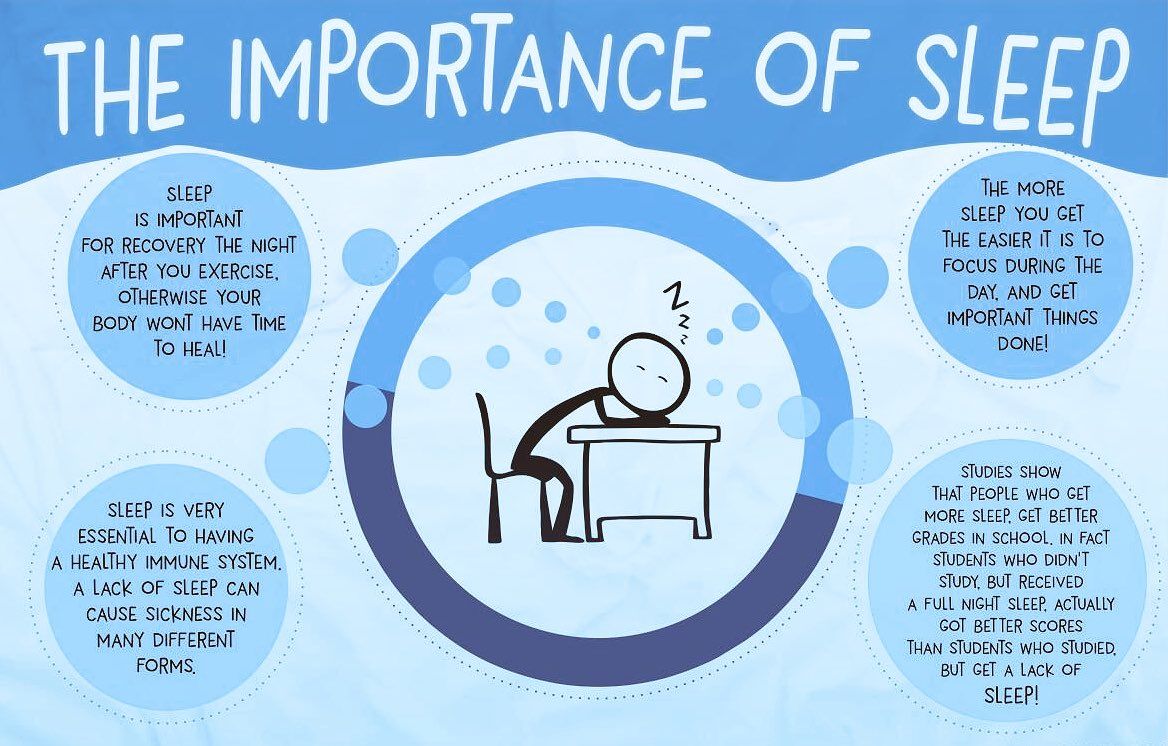In today's fast-paced world, we often undervalue the importance of sleep, yet its significance in our lives cannot be overstated. In this article, we will delve deep into the science of sleep and explore its extensive influence on our physical, mental, and emotional well-being. We'll cover key aspects, such as its role in the body's repair and regeneration processes, cognitive function, emotional regulation, cardiovascular health, and metabolism.
Quality sleep is not a mere luxury; it is a fundamental necessity. During the nighttime hours, our bodies engage in vital restorative processes that are essential for our overall health and well-being. Muscles are repaired, memories are consolidated, and the immune system is fortified. Without sufficient sleep, these crucial processes are disrupted, and our health can suffer as a result.
One of the most remarkable aspects of sleep is its profound impact on cognitive function. While we slumber, our brains are hard at work, organizing information and enhancing our problem-solving skills. It is during the REM (Rapid Eye Movement) sleep phase, when most of our dreams occur, that creativity blossoms. This phase is essential for synthesizing complex ideas and making creative connections. Depriving ourselves of this stage can stifle our creativity and hamper our problem-solving abilities.
The influence of sleep extends to our emotional well-being as well. Adequate sleep is a powerful tool for regulating our emotions and coping with stress. When sleep is lacking, we become more susceptible to mood swings, irritability, and even depression. It's essential to recognize that sleep and mental health are interconnected, and addressing sleep problems can be a significant step in managing emotional well-being.

On a physical level, sleep plays a pivotal role in cardiovascular health and metabolism. Research has shown that poor sleep is associated with an increased risk of obesity, type 2 diabetes, and heart disease. Additionally, sleep deprivation can disrupt the delicate balance of hormones that regulate appetite, leading to unhealthy eating habits and weight gain.
The consequences of sleep deprivation aren't limited to long-term health risks; they also affect our daily lives. Impaired judgment, slower reaction times, and compromised decision-making abilities are common when we haven't had enough rest. This is why sleep is vital not only for our long-term health but also for our immediate functioning and safety.
Understanding what affects sleep quality is crucial for improving our sleep habits. Factors such as sleep hygiene, the sleep environment, and lifestyle choices like diet and exercise all play a significant role. Creating a sleep-conducive environment, maintaining a regular sleep schedule, and limiting exposure to screens before bedtime are all part of good sleep hygiene. Additionally, a balanced diet and regular physical activity can positively impact sleep.
Sleep disorders are another important consideration. Conditions like insomnia and sleep apnea can disrupt the sleep cycle and have severe implications for health. Seeking medical attention and treatment for these disorders is crucial to ensure restorative sleep.
To further appreciate the importance of sleep, it's essential to understand the different sleep stages, including REM and non-REM sleep. Each stage serves a specific purpose in the restorative process. REM sleep is associated with vivid dreams and plays a crucial role in memory consolidation, while non-REM sleep focuses on physical restoration and growth.
In today's fast-paced world, prioritizing sleep has become more challenging but is also more critical than ever. The article provides practical tips for improving sleep quality, such as creating a relaxing bedtime routine, managing stress, and avoiding caffeine and heavy meals close to bedtime. It emphasizes the need to strike a balance between work, social life, and rest.
In conclusion, sleep is a cornerstone of our overall health and well-being. Its impact on cognitive function, emotional regulation, cardiovascular health, and metabolism cannot be underestimated. Prioritizing sleep and adopting healthy sleep habits are essential steps in maintaining a high quality of life and long-term health.
As you navigate the demands of modern life, remember that quality sleep is not a luxury but a vital component of a happy and healthy existence. Make sleep a priority, and you will reap the benefits in every aspect of your life.





